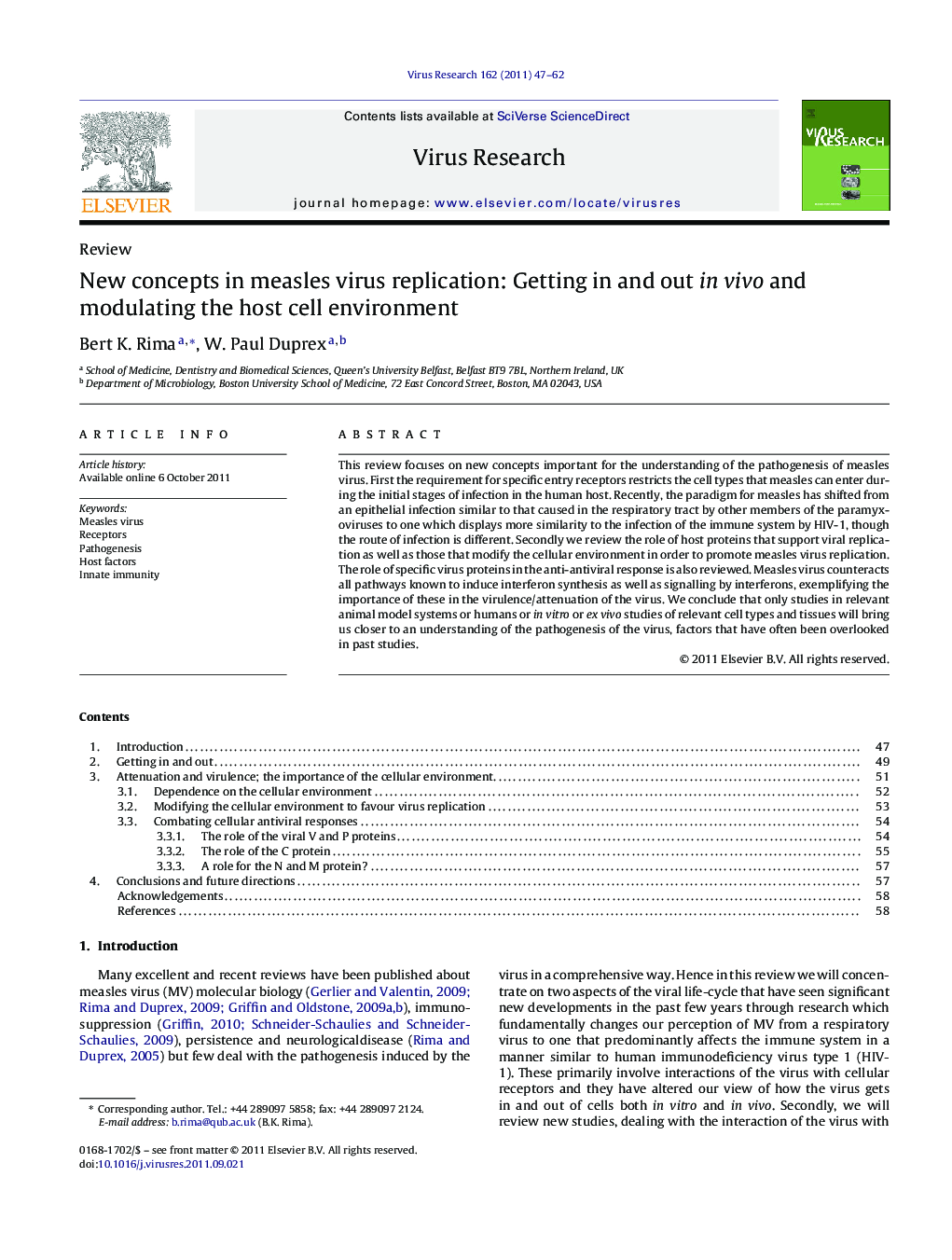| Article ID | Journal | Published Year | Pages | File Type |
|---|---|---|---|---|
| 3428941 | Virus Research | 2011 | 16 Pages |
This review focuses on new concepts important for the understanding of the pathogenesis of measles virus. First the requirement for specific entry receptors restricts the cell types that measles can enter during the initial stages of infection in the human host. Recently, the paradigm for measles has shifted from an epithelial infection similar to that caused in the respiratory tract by other members of the paramyxoviruses to one which displays more similarity to the infection of the immune system by HIV-1, though the route of infection is different. Secondly we review the role of host proteins that support viral replication as well as those that modify the cellular environment in order to promote measles virus replication. The role of specific virus proteins in the anti-antiviral response is also reviewed. Measles virus counteracts all pathways known to induce interferon synthesis as well as signalling by interferons, exemplifying the importance of these in the virulence/attenuation of the virus. We conclude that only studies in relevant animal model systems or humans or in vitro or ex vivo studies of relevant cell types and tissues will bring us closer to an understanding of the pathogenesis of the virus, factors that have often been overlooked in past studies.
